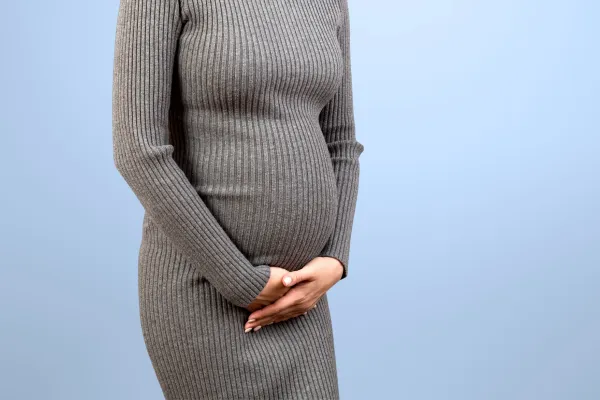Topics
An Overview of Pneumonia and Why It Poses A Higher Risk to the Elderly
Pneumonia is a severe lung infection brought on by bacteria, viruses, or fungi. It causes the air sacs in one or both lungs to be inflamed, frequently filling them with fluid or pus. Symptoms of this illness include continuous coughing, challenges in breathing, fever, and chest pain. The risk of pneumonia is significantly higher in the elderly because of age-related changes in their immune systems. The body’s ability to fight off infections weakens as one ages, causing the elderly to be more vulnerable. Diabetes, heart disease, and chronic obstructive pulmonary disease (COPD) are chronic illnesses that further increase susceptibility. Malnutrition and sedentary lifestyles can increase risks as well. Identifying these risk factors and taking preventive measures are important in protecting the elderly from serious complications. Gleneagles Hospitals offer professional care and provide targeted interventions to decrease the risks of pneumonia for vulnerable populations. Their experienced healthcare personnel ensure timely diagnosis and effective treatment plans customised to individual needs.
Preventing Pneumonia in the Elderly
Vaccinations Should be Encouraged
Vaccinations are still one of the most effective methods to prevent pneumonia, particularly in the elderly. The pneumococcal vaccine offers protection against bacterial pneumonia, a common and serious form of the disease. Yearly influenza vaccines also play an important role, as flu infections can cause pneumonia. Maintaining up-to-date vaccinations decreases the possibility of developing serious illnesses. Gleneagles Hospitals provide vaccination services and comprehensive immunisation packages that cater to every age group.
Adopt a Healthy Lifestyle
A healthy way of life enhances the immune system, decreasing the risk of infections such as pneumonia. Important nutrients for ensuring immunity are found in a well-balanced diet high in fruits, vegetables, and proteins. Frequent physical activity enhances lung function and general respiratory health. In addition to this, stopping smoking is important, as tobacco damages lung tissues and elevates vulnerability to respiratory infections. Gleneagles Hospitals encourage and promote healthy lifestyles through preventive screenings, along with guidance from nutritionists and healthcare professionals.
Symptoms of Pneumonia in the Elderly
Respiratory Symptoms
Pneumonia in the elderly usually starts with respiratory symptoms. A common sign is constant coughing, which may produce mucus or phlegm. Shortness of breath can happen even during little physical activity, making everyday tasks more difficult. Chest pain is another indicator of pneumonia, specifically when breathing deeply or coughing. These respiratory problems can take a toll on someone’s quality of life.
Systemic Signs
Respiratory issues are constantly accompanied by systemic symptoms in pneumonia cases. Fever and chills are signs of the body’s response to infection. However, the elderly may show unusual symptoms such as confusion or disorientation, which happen because of decreased oxygen levels in the blood. Fatigue and general weakness are also common, making it challenging for the elderly to perform their everyday activities.
Other Indicators
Another common yet less identifiable pneumonia symptom is a loss of appetite, usually causing unintentional weight loss. Dehydration may happen as people struggle to keep a sufficient fluid intake. In serious cases, complications can occur, such as low blood pressure or decreased kidney function. Early detection of these symptoms guarantees immediate medical attention, decreasing the risk of chronic health issues.
The Importance of Early Diagnosis and Treatment for Pneumonia
Diagnosing pneumonia early is important to prevent serious complications such as respiratory failure, sepsis, or multi-organ damage. Immediate detection of symptoms lets a quicker start of the treatment, leading to better recovery results.
Antibiotics for bacterial pneumonia, antiviral medications for viral cases, and supportive care such as oxygen therapy are included in effective treatment. Delaying treatment can worsen the condition, causing serious health challenges to occur. Gleneagles Hospitals give top priority to early diagnosis and personalised care, ensuring customised treatment plans are provided to each patient. Their multidisciplinary approach gives patients and their families peace of mind by focusing on a speedy recovery and preventing complications.
Frequently Asked Questions (FAQs)
1. How do doctors diagnose pneumonia, and can it be done using non-invasive methods?
Pneumonia is diagnosed through different types of methods, comprising physical examinations and imaging tests such as chest X-rays. Measuring oxygen levels in the blood through non-invasive methods such as pulse oximetry helps detect possible respiratory issues without discomfort.
2. What are the effects that pneumonia has in the long run for elderly adults?
The elderly who have pneumonia may experience persistent effects including decreased lung function and increased fatigue. These chronic effects can affect everyday activities and may need extended rehabilitation to restore health entirely.
3. It is possible for pneumonia to recur, and how can it be treated?
Pneumonia can indeed return specifically in people with compromised immune systems or underlying medical conditions. Vaccination, frequent health check-ups, and keeping a healthy lifestyle are good strategies to prevent recurrence.
4. How are pneumonia cases affected by Malaysia’s climate?
The climate in Malaysia is humid, therefore creating an environment susceptible to respiratory infections. Seasonal changes, especially during the monsoon season, regularly lead to a spike in pneumonia cases among vulnerable groups.
5. Do Gleneagles Hospitals provide pneumonia-related health checks or packages?
Gleneagles Hospitals offer comprehensive health checks customised to every individual’s respiratory health. These include lung function tests, vaccinations, and consultations with respiratory specialists to ensure timely detection and pneumonia prevention.
Schedule an Appointment at Gleneagles Hospitals
Pneumonia can lead to serious health complications if it is untreated. If you or someone you know has symptoms such as a continuous cough, fever, difficulty breathing, or chest pain, seek medical attention right away. Early diagnosis and treatment can significantly enhance recovery outcomes and prevent severe complications.
For health screening or vaccine consultations, you can schedule an appointment through our website or download the MyHealth360 application from Google Play Store or Apple App Store. Our dedicated healthcare personnel are here to provide personalised care for you and your loved ones.








